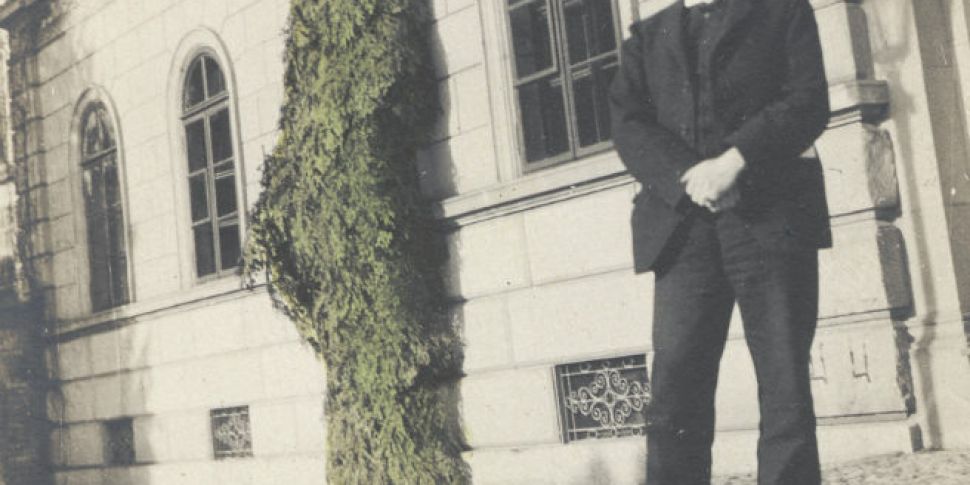"God is dead. God remains dead. And we have killed him. Yet his shadow still looms." – Friedrich Nietzsche in The Gay Science, 1882.
The 19th century had seen the world undergo a series of massive revolutions in thought, science, and technology. Medicinal advances had changed life expectancy and the healthcare around the world. Yet war was being fought on a scale hitherto unseen. The industrialisation of war was matched everywhere else and urban populations exploded as people flocked to the factories to produce the materials and goods that were changing every aspect of the world.
Political and philosophical schools of thought rose in reaction to the increasingly visible plight of the urban poor. The resulting socialist theories challenged the institutions that supported wealth inequality and advocated a state where all individuals were paramount. Coupled with this challenge to the status quo was the rise of the theory of evolution and an increasing understanding of how the universe works.
Though he was probably overstating his case Nietzsche’s words highlight man’s growing power and the waning of gods and religions during the 19th century. This shift in power allowed for the breaking of religious taboos and helped to establish the scientific study of mankind. While many pioneers looked to observe and understand the myriad of human societies and cultures others were more interested in what went on in the human mind.
 Clockwise from top left: Abraham A. Brill, Ernest Jones, Sándor Ferenczi, Carl Jung, G. Stanley Hall, Sigmund Freud.
Clockwise from top left: Abraham A. Brill, Ernest Jones, Sándor Ferenczi, Carl Jung, G. Stanley Hall, Sigmund Freud.
Toward the end of the 19th century psychoanalysis emerged as a school of psychiatric thought with a focus on the subconscious. Pioneered by Sigmund Freud psychoanalysis attempted to get an understanding of patients’ neurosis and insights into how the human brain works. This was mainly done through analysing the patient’s memories, dreams, and associated thoughts.
One of Freud’s most outstanding protégés was Carl Gustav Jung. Being the son of a Swiss pastor it isn’t surprising that Jung became fascinated by the god Nietzsche had declared deceased, or more specifically his divine shadow. His resulting theories on the collective unconscious and the role of religion and spirituality in the human mind have made Jung one of the most influential and important figures in the field of psychoanalysis to date.
In 1923 Freud published The Ego and the Id which described his theory of the three elements of the human psyche; the id, the ego, and the superego. Freud argues that our subconscious is composed of the animalistic id and its vying with the moralistic superego; the former prompting us through desires and instincts while the latter calls up our social and familial conditioning. It is our conscious ego that mediates between the personal desires of the id and the moralising of the superego, and in the end chooses what course of action we take.
 Carl Jung in his study
Carl Jung in his study
Years before Freud published The Ego and the Id Jung and he had a falling out over the nature of the subconscious. Feeling that Freud placed too much emphasis on sex and sexuality as man’s basic subconscious drive Jung diverged from his mentor, supposedly quoting Nietzsche’s line; one repays a teacher badly if one remains only a pupil. Though Jung agreed with much of Freud’s theory of the id, ego, and superego he once again thought his erstwhile teacher had overlooked the true depth of the subconscious.
Jung’s main concern in psychology was ‘individuation’. This is the process whereby a person forms their identity and becomes ‘distinct from the general, collective psychology’. One of the key concepts in Jung’s theory therefore is the collective psychology that a person has to distinguish themselves from. We inherit this collective unconscious from our society and are shaped by the pre-existing moulds into which we fit.
Jung envisioned these archetypes as universal patterns and images that reach far back in history. These underlying psychic structures took many forms depending on the society in question, but they were all supposedly primordial images. These archetypes include events, like birth or coming of age, figures, like the mother or god, and motifs, like the apocalypse.
Carl Jung interview with Dr Richard Evans
Jungian psychology tries to make us aware of the archetypes prescribed to us by our collective unconscious. The aim of this is to make us wholly aware of our own view of ourselves and as a result enable us to effect changes in our psyche. Because of the irreversible entangling of religion with these archetypes Jung viewed the human psyche as, by nature, religious. This resulted in a growing fascination with the religions and philosophies from around the world, including alchemy and astrology.
This interest in the occult and other scientifically questionable areas of study led to Jung being viewed by many as a mystic and spiritualist. During his lifetime, however, Jung’s influence began to increase and by the time of his death in 1961 he was well established as one of the world’s foremost psychoanalysts. The school of psychology Jung established has continued to be highly influential with many practitioners embracing its focus on personality development through self-awareness and self-actualisation.
Join ‘Talking History’ as Patrick and a panel of experts delve into the life of Carl Jung. Learn about the childhood marked by his mother's visions and delusion. His blossoming into the field of psychoanalysis and relationship with Sigmund Freud. His relationship with Nazi Germany and resulting accusations of fascist sympathies. And hear how he carved out his own school of psychological thought and how this has effected lasting change around the world.









